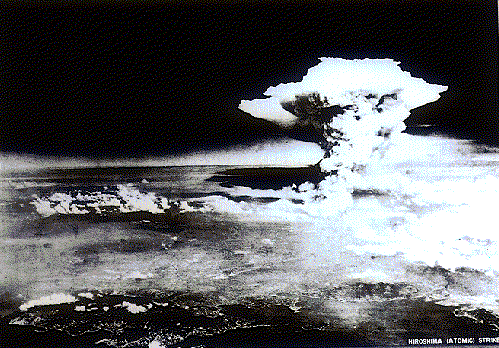Debate views: 5,922
Debate Summary
Was the atomic bombing of Hiroshima and Nagasaki justified?
The atomic bombings of the cities of Hiroshima and Nagasaki in Japan were conducted by the United States during the final stages of World War II in 1945. These two events represent the only use of nuclear weapons in war to date.
Following a firebombing campaign that destroyed many Japanese cities, the Allies prepared for a costly invasion of Japan. The war in Europe ended when Nazi Germany signed its instrument of surrender on 8 May, but the Pacific War continued. Together with the United Kingdom and the Republic of China, the United States called for a surrender of Japan in the Potsdam Declaration on 26 July 1945, threatening Japan with "prompt and utter destruction". The Japanese government ignored this ultimatum, and the United States deployed two nuclear weapons developed by the Manhattan Project. American airmen dropped Little Boy on the city of Hiroshima on 6 August 1945, followed by Fat Man over Nagasaki on 9 August.
Within the first two to four months of the bombings, the acute effects killed 90,000–166,000 people in Hiroshima and 60,000–80,000 in Nagasaki, with roughly half of the deaths in each city occurring on the first day. The Hiroshima prefecture health department estimated that, of the people who died on the day of the explosion, 60% died from flash or flame burns, 30% from falling debris and 10% from other causes. During the following months, large numbers died from the effect of burns, radiation sickness, and other injuries, compounded by illness. In a US estimate of the total immediate and short term cause of death, 15–20% died from radiation sickness, 20–30% from burns, and 50–60% from other injuries, compounded by illness. In both cities, most of the dead were civilians, although Hiroshima had a sizeable garrison.
On 15 August, six days after the bombing of Nagasaki, Japan announced its surrender to the Allies, signing the Instrument of Surrender on 2 September, officially ending World War II. The bombings led, in part, to post-war Japan's adopting Three Non-Nuclear Principles, forbidding the nation from nuclear armament. The role of the bombings in Japan's surrender and their ethical justification are still debated.
Tags:
Top Debate Answers
There are currently no TOP DEBATE ANSWERS for this debate.
Lettuce (Pro)
Yes
Green Lettuce
While debating, choose the Green Lettuce side for Pro (if you are in favor of the debate.)
Number of lettuce debate answers: 0
Cabbage (Con)
No
Red Cabbage
While debating, choose the Red Cabbage side for Con (if you are in opposition of the debate.)
Number of cabbage debate answers: 0



